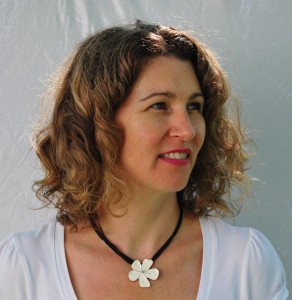As any new mother will tell you, things can get pretty overwhelming after you bring your new bundle of joy home from the hospital. However, some postpartum experiences cause more anxiety and distress than others.
Unwanted, intrusive thoughts of harm coming to one’s infant are experienced universally by all new mothers, and close to half of new moms experience unwanted, intrusive thoughts of harming their own babies. Both of these kinds of “harm thoughts” (accidental and intentional) can be extremely upsetting to the women who experience them; provoking fears about their own mental stability and, subsequently, ability to care for their child.
Nichole Fairbrother, a clinical psychologist and Assistant Professor in the Department of Psychiatry, has been working on a research project that aims to determine both how common these thoughts are, among postpartum women, as well as what kinds of mental health issues might result from them.
Perinatal caregivers often worry that “harm thoughts” may indicate that a woman is at risk of hurting her child. However, evidence suggests that the occurrence of these thoughts is quite normal, and is much more likely to lead to the onset or exacerbation of obsessive compulsive disorder (OCD), a potentially debilitating anxiety disorder. Responding appropriately to women who report these kinds of thoughts is critical for mothers and their infants.
“New mothers and their healthcare providers are often very concerned by the thoughts of harm they experience in relation to their infant, and worry that they may be at risk of harming their
baby,” explains Dr. Fairbrother. “If, in fact, these thoughts do not indicate a risk of harm to the infant, but rather indicate an increased risk of developing an anxiety disorder such as obsessive compulsive disorder, I believe it is important to educate mothers and their care providers about this.”
Currently, Dr. Fairbrother’s project is in the data collection and recruitment phase. Pregnant women who agree to participate will be administered questionnaires and an interview at 33 weeks gestation, and again at one and three months post-partum. This research will determine the prevalence of postpartum thoughts of harm and postpartum OCD. It will also examine whether or not there is an association between these thoughts and actual maternal harming behaviours.
Dr. Fairbrother believes the knowledge gained through this study will be integral to the development of interventions for pregnant and postpartum women and educational material for maternity care providers. She is optimistic that her research will have a positive effect on how pregnant and post-partum women are cared for.
“New mothers are sometimes unnecessarily separated from their infants, due to misconceptions around these kinds of thought patterns,” says Dr. Fairbrother. “My hope is that we can influence the content of prenatal education, particularly education relating to postpartum mental health.”
